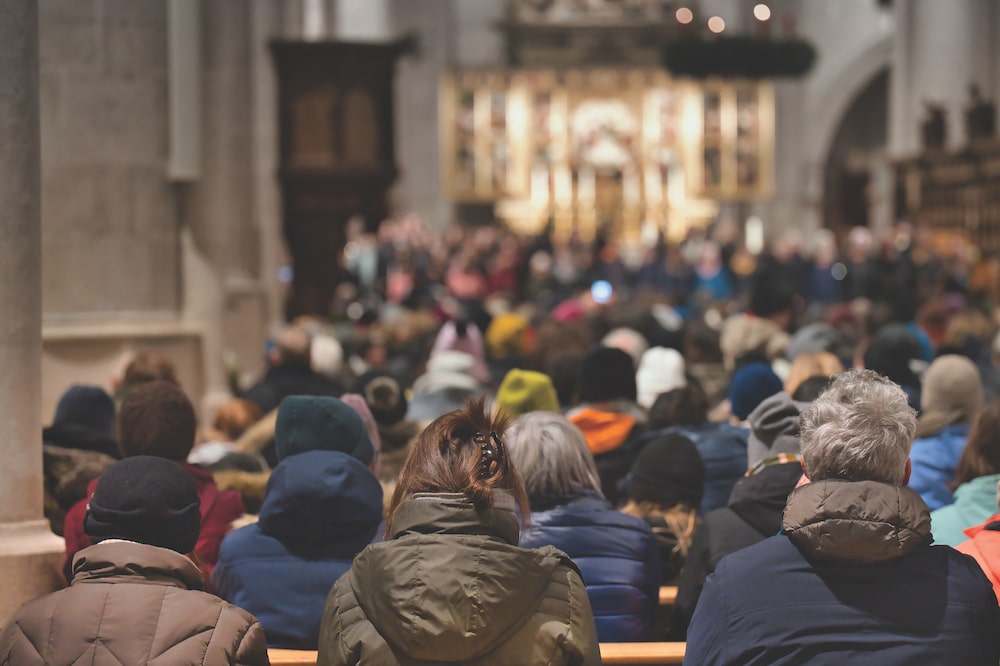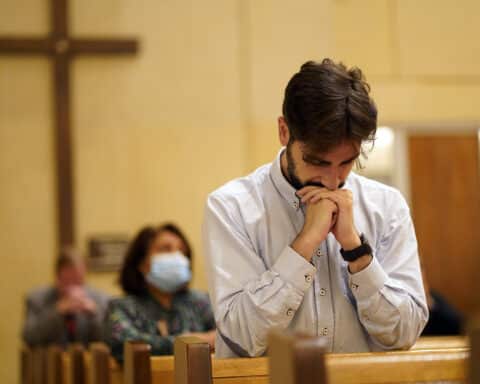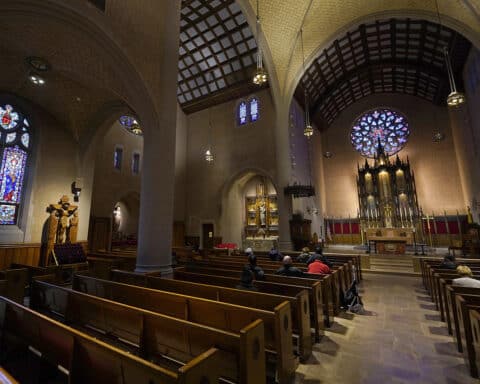Question: Our parish family is fairly large, and during certain times of the year, usually Christmas and Easter, more people show up for Mass than we have room for in the church. As a result, the overflow crowd goes to the parish center for Mass. Another priest would celebrate that Mass there. However, in the past year, they just put up a few TV screens and streamed the Mass from the church to the parish center. This was done even though we had two priests available to say Mass. But they chose not to. I wonder if I fulfilled my obligation to attend Mass since you wrote, “watching Mass on TV does not fulfill the obligation.” Why does it fulfill the obligation if I watch it on TV in a parish center instead of my house across the street? If we have an obligation to attend Mass in person, I think the church has an obligation to provide a priest to say Mass in person, especially when a priest is available.
— Name withheld, via email
Answer: You fulfilled your obligation by attending in the overflow room. Ideally, the parish should have had another priest at the parish center. But, there is a difference between watching Mass on a screen in an overflow room at a parish and watching the Mass on a television at home. The most significant difference is that one is able to receive holy Communion in the overflow room, whereas, at home, this is not possible. Further, while the actual church may be full, one is still on-site where the Mass is taking place, and one is with the people of God who are gathered together in the house of the Lord.
This leads us to an important consideration of the sacraments and the human person. As human beings, we are not our soul or body alone, we are a composite of body and soul. Hence, there is a physical component to the celebration of all the sacraments. In baptism, water is poured upon the body to bring cleansing to the person, body and soul. In several of the sacraments, holy oils are used to anoint the body and bring healing to the soul. Other sacraments involve the laying on of hands or, in the case of holy matrimony, the joining of hands. In all cases, the body is touched. Even in confession, celebrated behind a screen, still involves the priest laying hands on the person by extending his hand over or near him or her. In holy Communion, Christ Jesus is received into the body to nourish body and soul. Hence, physical presence is essential for Catholics in the celebration of the sacraments and the holy liturgy.
In cases where one cannot come to the Church for a serious reason, they are dispensed from the obligation to attend holy Mass. A “TV” Mass has long been offered for such occasions, which supplies some connection to the holy liturgy, but this is not the same as going to holy Mass at a church. Holy Communion cannot be received on TV and must be brought to the home-bound in some real and physical way. Confessions cannot be heard over the phone, baptism cannot be conferred online, and so forth. It is always lamentable that one cannot physically attend holy Mass, and for this reason the Church has long made efforts in such situations to bring the sacraments to the homebound.
During the pandemic, the closing of churches impacted Catholics greatly since the reception of the sacraments requires physical presence. Some began to like recorded or streamed Masses and spoke of them as being the same or even better than going to Church since it was so convenient. But this offends against sacramental theology for the reasons stated above. We have bodies, and notions of “virtual” (electronic) presence are simply not adequate. The inadequacy of this kind of presence is characterized by the expression, “to phone it in.” In Jesus’ parable about the wedding feast of the king, declining the invitation to attend in person drew severe punishments, promises that “I will be with you in spirit” notwithstanding (cf. Mt 22:1-14).
Parishes must, in situations that you describe, make extra Masses available in times of overflow; ideally celebrated by different priests or, less ideally, by the use of a large screen. But it is always best to ensure and enable physical attendance of God’s faithful in the holy house of God, which is the church and parish structures.
Msgr. Charles Pope is the pastor of Holy Comforter-St. Cyprian in Washington, D.C., and writes for the Archdiocese of Washington, D.C. at blog.adw.org. Send questions to msgrpope@osv.com.





